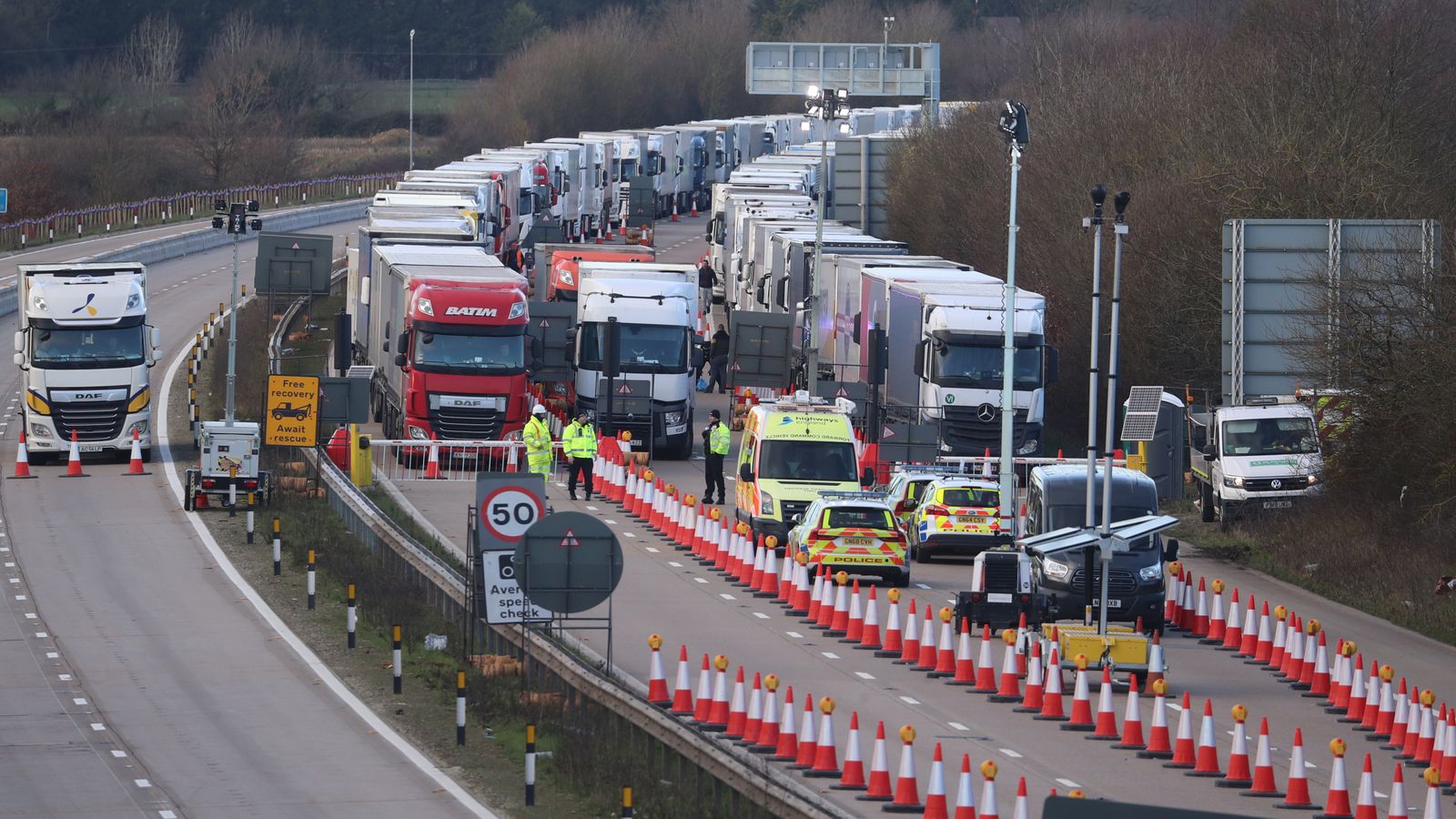Operation Brock: Lorry controls to avoid post-Brexit disruption around Port of Dover in Kent to be used to manage future issues
Lorry traffic controls introduced to avoid post-Brexit disruption around the Port of Dover in Kent are set to be used to manage future issues in the area.
The Department for Transport has announced that the traffic reconfiguration on the M20, known as Operation Brock, will continue past its current 31 October deadline.
It said the change, which will be formally approved once Parliament returns next month, will allow the emergency measures to be used to respond to “any type of traffic disruption in the area” and not just that pertaining to Britain’s departure from the European Union.
“Operation Brock measures will remain temporary and will only be used when there is a significant risk of delays,” a DfT spokesperson said.
“While Operation Brock was originally created to deal with disruption caused by EU exit and in response to the COVID-19 pandemic, removing the sunset clauses from Operation Brock will mean the Kent Resilience Forum (KRF) is better prepared to respond to any type of traffic disruption in the area, not solely related to EU exit, including strikes and severe weather.”
Traffic management measures were brought in because of worries Brexit could cause disruption to cross-Channel trade.
Kent Access Permits – which lorry drivers had to secure before entering the county – and Operation Brock were both introduced to try and avoid this.
The latter is a series of concrete barriers that allow lorries to be held to one side of the M20 to get to Dover.
When this is deployed, the rest of the traffic flows in both directions via a restricted narrow lane contraflow system on the other side of the road.
A moveable barrier was installed between Junctions 8 and 9 as part of the contraflow system.
The DfT announced in April that this would be dismantled and stored on the hard shoulder in case it is needed in the future.
Legislation for Operation Brock was first introduced in 2019, before being updated in 2020 ahead of the end of the Brexit transition period.
There was a third update earlier this year in response to the French border being closed over fears about the spread of the Alpha variant of COVID-19, a strain that was first identified in Kent.
In May, the government said it wanted views on proposals to “bring Operation Brock within a sustainable long-term traffic management plan” by removing the existing sunset clauses from the legislation.
Ministers said the move would ensure Operation Brock could be used “in the future as a contingency traffic management measure for disruption” and claimed it had elicited a “positive” response.
Statutory instruments, legal alterations that do not need new laws to be passed, removing the sunset clauses will be put before Parliament next month.
They will then be debated in the Commons and Lords.
For all the latest business News Click Here


